“Come Holy Spirit, live within our lives,” we pray to open every Conference meeting, asking to be strengthened by the first fruit of the Holy Spirit: love. But let us also pray for the second fruit: joy!
Love sometimes means doing things we do not want to do, putting the needs of another before our own. For Vincentians, this is often begins with an interruption – we’d like to finish our meal, enjoy the weekend, or just relax and watch television, but the poor are calling. We don’t begrudge the poor their needs, of course, but we can sometimes adopt an unfortunate mindset; a grim sense of duty, a commitment to do the work, no matter how difficult or even unpleasant it may be at times.
After all, St. Vincent calls us to love God “with the strength of our arms and the sweat of our brow.” It sounds like hard work, this whole love business! We know that it’s worth it, but who smiles while plowing the field?
We do!
Reflecting on the grace of God above both the splendors and hardships of earth, St. Louise once asked, “Why are our souls not in a continuous state of joy and happiness?” [Sp. Wr., p. 774] As Robert Barron, Bishop of Los Angeles, sometimes explains, God’s love exists only in the form of a gift; once we receive it, we give it away, only for it to be replenished. So for every act of charity, for every gift of love, it is we who are receiving. Why would we not be filled with joy?
The Lord loves a cheerful giver. Blessed Frédéric advised his brother Charles to “bring a joyful dedication to the works” of the Society. [Letter 314 to Charles Ozanam, 1841] We serve not out of duty, not for reward, but for love alone, so that we may “draw nearer to Christ, serving Him in the poor and one another.” [Rule, Part I, 2.2]
This is the truth that ultimately should bring us such joy that we can hardly contain it: we are in the presence of the living Christ! It is in giving that we receive, and in giving to the One whom we adore that we are filled with joy.
And the Lord loves a cheerful giver!
Contemplate
How can I let go of cares and smile?


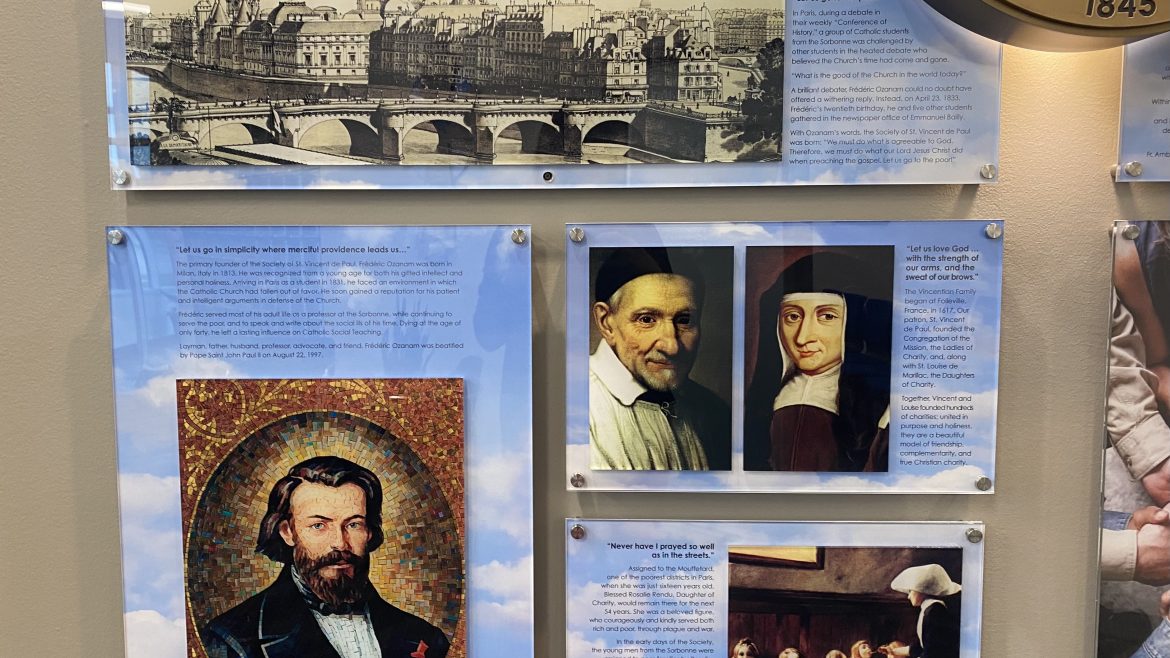
 Two weeks ago, Society of St. Vincent de Paul leadership from across the country gathered again for the first time in more than a year. Their primary purpose was Board and Strategic Planning meetings, though they had another reason to gather as well: to witness the dedication of the National Council’s new headquarters at 66 Progress Parkway in Maryland Heights, Missouri.
Two weeks ago, Society of St. Vincent de Paul leadership from across the country gathered again for the first time in more than a year. Their primary purpose was Board and Strategic Planning meetings, though they had another reason to gather as well: to witness the dedication of the National Council’s new headquarters at 66 Progress Parkway in Maryland Heights, Missouri.
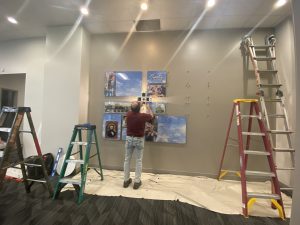
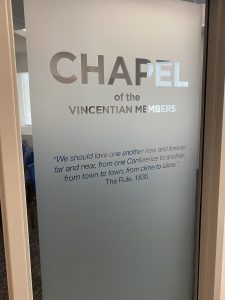 The Chapel of Vincentian Members
The Chapel of Vincentian Members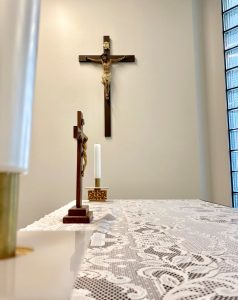 The balance of past and present flows from the History Wall into the Chapel as well. While the altar is a new piece, the Stations of the Cross, crucifix, and seating came from the Archdiocese of St. Louis’
The balance of past and present flows from the History Wall into the Chapel as well. While the altar is a new piece, the Stations of the Cross, crucifix, and seating came from the Archdiocese of St. Louis’ 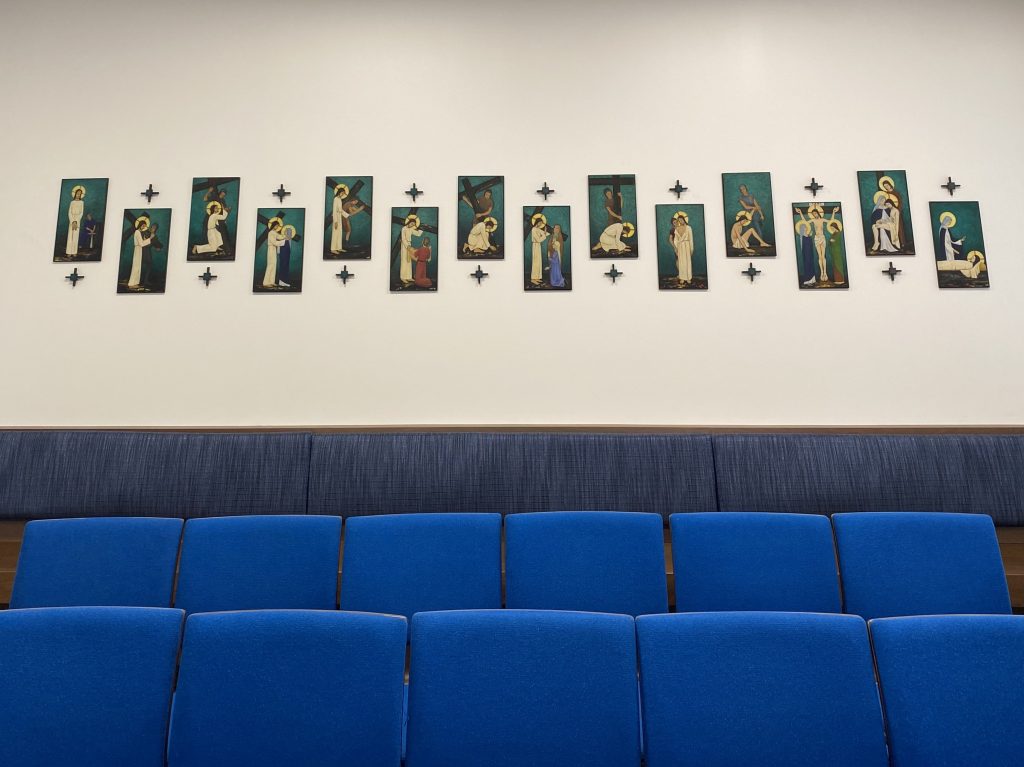 The space is filled with natural light coming from glass bricks off the building’s V-shaped entryway (which predates our occupancy), and the new altar has a V-shaped base whose shape mimics old glass wall. The overall feeling is one of serenity and harmony.
The space is filled with natural light coming from glass bricks off the building’s V-shaped entryway (which predates our occupancy), and the new altar has a V-shaped base whose shape mimics old glass wall. The overall feeling is one of serenity and harmony.